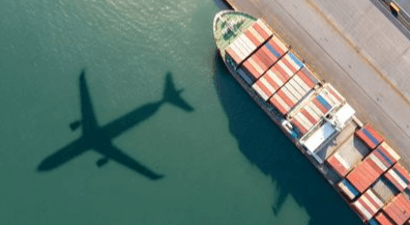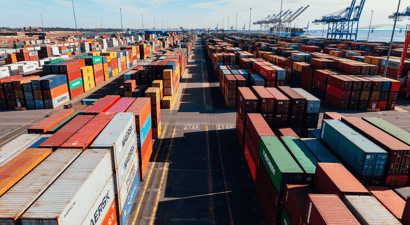Judgment on Limitation Provisions of South Africa's Merchant Shipping Act: Owners and Underwriters of the MV 'MSC Susanna' and Another v Transnet (SOC) Ltd and Another
Case Note: MV ‘MSC Susanna’: Owners and Underwriters of the MV ‘MSC Susanna’ and Another v Transnet (SOC) Ltd and Another (1039/2020) [2021] ZASCA 135 (6 October 2021).
Introduction
On 6 October 2021, the Supreme Court of Appeal delivered judgment in an appeal against the decision of the KwaZulu-Natal Division of the High Court, Pietermaritzburg made by Mngadi J. The learned Judge of the Court a quo had rejected the Appellants’ attempt to join the Ministère des Armées (“the MDA”) as a Defendant in a limitation action instituted against Transnet (SOC) Ltd (“the TNPA”). Shepstone & Wylie acted for the Appellants in this matter.
Overview of the Facts
On 10 October 2017, an incident labelled as The Great Storm occurred in the port of Durban, which resulted in the parting of the mooring lines of the MSC Susanna berthed within the port. The MSC Susanna drifted away from her berth and through the port, colliding with other vessels, one of which was the FNS ‘Floreal’, a French naval vessel under the control of the MDA. As a result of the collision with the French naval vessel, the Owners, Underwriters and Demise Charterer of the MSC Susanna were faced with a claim from the MDA for approximately €10 million.
In November 2019, the Appellants instituted a limitation action against the TNPA in terms of s 261(1)(b) of the Merchant Shipping Act 57 of 1951 (“the Act”) and applied to join the MDA to said the limitation action. The MDA adopted the position that as the owner of a foreign naval vessel, the Appellants’ right to limit against the MDA was excluded in terms of s 3(6) of the Act. This position was accepted by Mngadi J in dismissing the Appellants’ application.
Issue before the Appeal Court
The issue before the Appeal Court, in the words of the Honourable Judge of Appeal Wallis in his written judgment, were “admirably encapsulated” in the statement of issues agreed upon between the parties:
‘The parties agree that the appeal turns on whether the owners and demise charterers of a merchant ship may, in circumstances where a merchant ship causes damage to a ship belonging to a defence force as contemplated in Section 3(6) of the Merchant Shipping Act, 1951 (‘the Act’), seek a limitation of liability in terms of Section 261 of the Act in respect of the claim of that defence force.’
Relevant Legislation and its Application
The Appellants relied on s 261 of the Act in contending that the MDA’s claim is subject to limitation. The section provides:
'The owner of a ship, whether registered in the Republic or not, shall not, if … any loss or damage to any property or rights of any kind, whether movable or immovable, is caused without his actual fault or privity –
- . . .
- if no claim for damages in respect of loss of life or personal injury arises be liable for damages in respect of loss of or damage to property or rights to aggregate amount exceeding 66.67 special drawing rights for each ton of the ship’s tonnage.'
The MDA relied on s 3(6) of the Act, which provides:
'The provisions of this Act shall not apply to ships belonging to the defence forces of the Republic or of any other country.'
Wallis JA, in his judgment, opined that the right to limit is given to the owner of a vessel, an expression given an extended meaning in s 263(2), in respect of all loss or damage to any property or rights of any kind, whether movable or immovable. That language encompasses all types of property, without qualification. It is clearly wide enough to include the loss or damage embodied in the claim by the Ministry.
Regarding s 3(6), Wallis JA said that it is indisputable that s 3(6) excludes the bulk of the provisions of the MSA from application to both South African and foreign vessels forming part of their country's defence forces. The section says that the provisions of the MSA shall not apply 'to ships'. It does not say that its provisions will not apply to the owners of ships. Much less does it say that the Act does not apply to defence forces, so as to preclude owners of merchant ships from invoking its provisions by, for example, seeking an order for the division of loss after a collision, or a contribution to the damages arising from jointly caused personal injury, or an order limiting their liability. Linguistically s 3(6) is not apt to exclude the invocation of limitation by the owners of the MSC Susanna.
In reaching his judgment, Wallis JA examined both Canadian and English law relating to limitation, and concluded that the MDA’s arguments were incongruous on the following bases:
- Had the incident giving rise to this case resulted in loss of life or injury to naval personnel on board the FNS Floreal, they and the dependents of any who were killed could have brought actions against the Appellants to recover damages. Any such claims would have been subject to limitation. Nothing in s 3(6) suggests that the officers and crew of the FNS Floreal would enjoy some special exemption from the application of limitation and it seems incongruous to say that the MDA, as the owner of the FNS Floreal, can do what its officers and crew cannot and escape the application of limitation;
- A second incongruity is that the effect of the MDA’s construction would be that vessels belonging to the defence force of South Africa or another state, would be able to resist any limitation of their claims under s 261, but other vessels owned by the South African state or any foreign state would not.
Conclusion
The Court found that the Appellants are entitled to claim to limit their liability, if any, arising from the events in Durban harbour on 10 October 2017 in respect of the claim by the MDA under s 261(1)(b) of the MSA. Their entitlement to do so is not excluded by s 3(6) of the MSA.
Accordingly, the appeal was upheld. You may read the full judgement at: https://www.wylie.co.za/LegalNotices.





